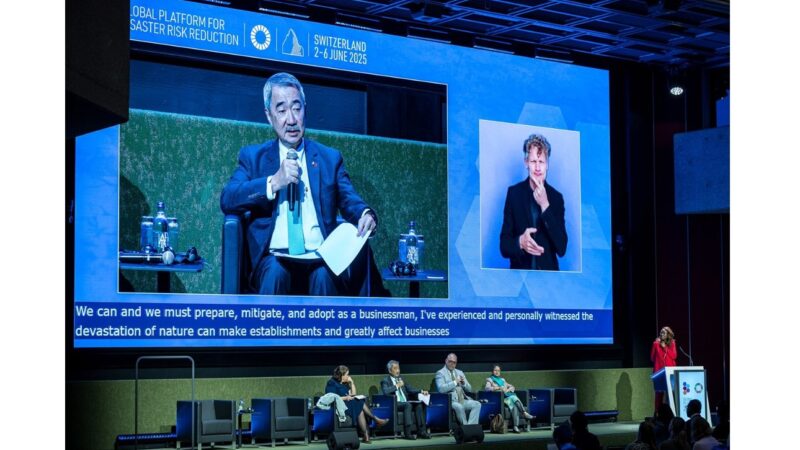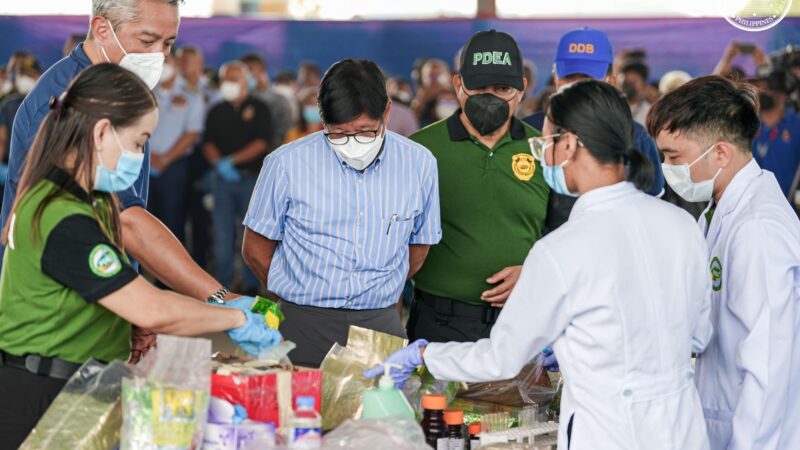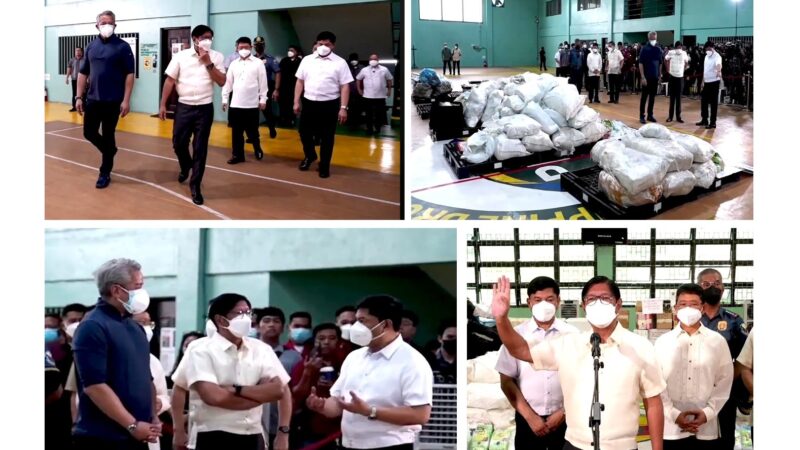Governments worldwide brace for looming world crisis
Incoming President Ferdinand “Bongbong” Marcos, Jr.’s resolve to prioritize and boost agriculture will be effected through immediate and long-term actions, as governments worldwide brace for a looming food crisis and increasing levels of food insecurity, said incoming Press Secretary Atty. Trixie Cruz-Angeles.
Several overlapping crises have created a “perfect storm” for a worldwide food crisis, according to the World Bank, World Trade Organization (WTO), and the June-September 2022 Hunger Hotspots outlook by the Food and Agriculture Organization (FAO) of the United Nations and the World Food Programme (WFP).
The FAO and WFP hunger hotspots outlook warn of an “acute food insecurity.”
“The lingering effects of COVID-19, weather extremes, economic shocks, conflict, the rising cost of fuel and energy, public debt burdens, and disruptions in the supply chain brought about by the war in Ukraine have been identified as factors exacerbating the strain on food security, which has now become a race against time,” said Angeles.
The hunger hotspots outlook states, “Organized violence and conflict remain the primary drivers for acute hunger… Moreover, weather extremes such as tropical storms, flooding and drought remain critical drivers in some regions.”
It adds, “Ripple effects of the war in Ukraine have been reverberating globally against the backdrop of a gradual and uneven economic recovery from the COVID-19 pandemic, steadily increasing food and energy prices, and deteriorating macroeconomic conditions.”
Since the war began in February, shipments from Ukraine’s Black Sea harbors have halted and those of the Russian Federation reduced in volume, thereby increasing the cost significantly, especially on countries dependent on food imports.
“Disruptions to Ukrainian agricultural production, logistics and food processing caused by active fighting and input shortages already affect global food supplies. Additionally, already high fertilizer costs – exacerbated by market uncertainties caused by the war – have reached record levels,” the outlook states.
According to Morgan Stanley, Russia and Ukraine export 28% of fertilizers made from nitrogen and phosphorus.
Wheat exports from the two countries, meantime, account for about 29% of international exports.
Citing the outlook and an earlier statement by the Philippine Chamber of Agriculture and Food, Inc. (PCAFI), Angeles said food protectionism plus the need to control domestic prices amid spikes in worldwide prices and the expected food crisis may prompt exporting countries to limit or ban food and other exports.
This happened during the 2007-2008 food crisis.
“That will be a challenge for the incoming Marcos administration, as we are currently dependent on some food importations, including rice,” Angeles said.
She added, “It will require an immediate response, even as President-elect Marcos stresses the long-term solutions should be simultaneously underway.”
During the campaign period, Marcos underscored the need to propel the Philippines towards achieving food security and, eventually, food sovereignty — putting control back in the hands of the community and the people, directly linking farmers to consumers and limiting the number of hands in the value chain; implementing subsidies; limiting importation; adopting modern techniques and incentivizing research and development to promote innovation.
In April, he explained efforts to boost the local agriculture sector will not be immune to “intervening factors” that are beyond control, such as rising fuel prices in the world market.
Pump prices soared anew in June due to increasing demand in northern hemisphere nations now experiencing summer and a ban on Russian oil by the European Union.
“Mayroon tayong methodology kung paano gawin, pero madaming factors na wala tayong control, wala tayong influence — hindi natin ma-i-influence world events that affect our farmers directly,” Marcos said at a news conference.
Still, the incoming chief executive stressed, that he remains committed to his aspiration to achieve food security and food sovereignty. ###






